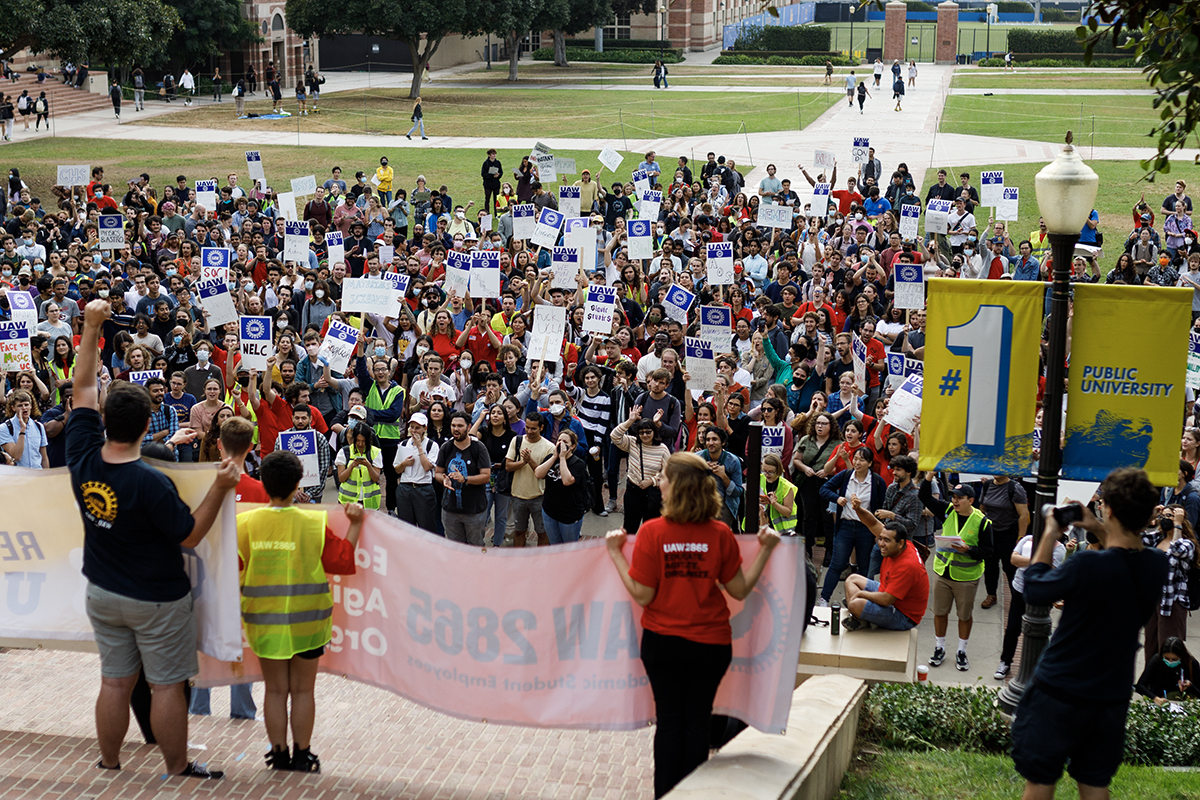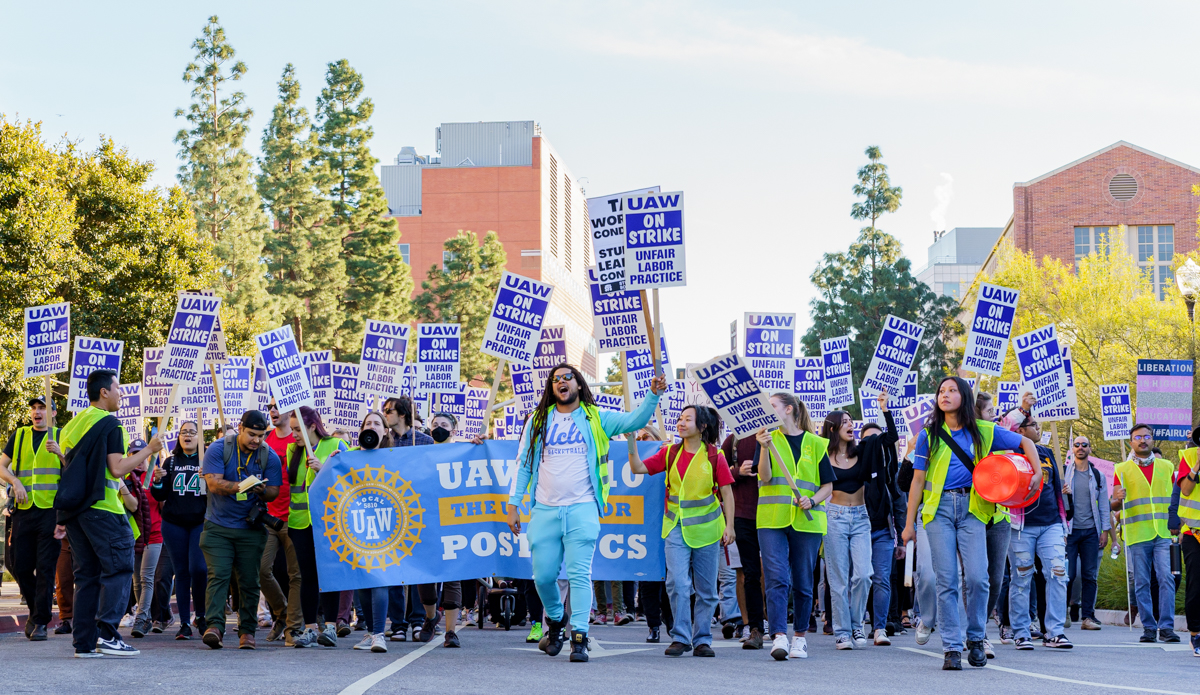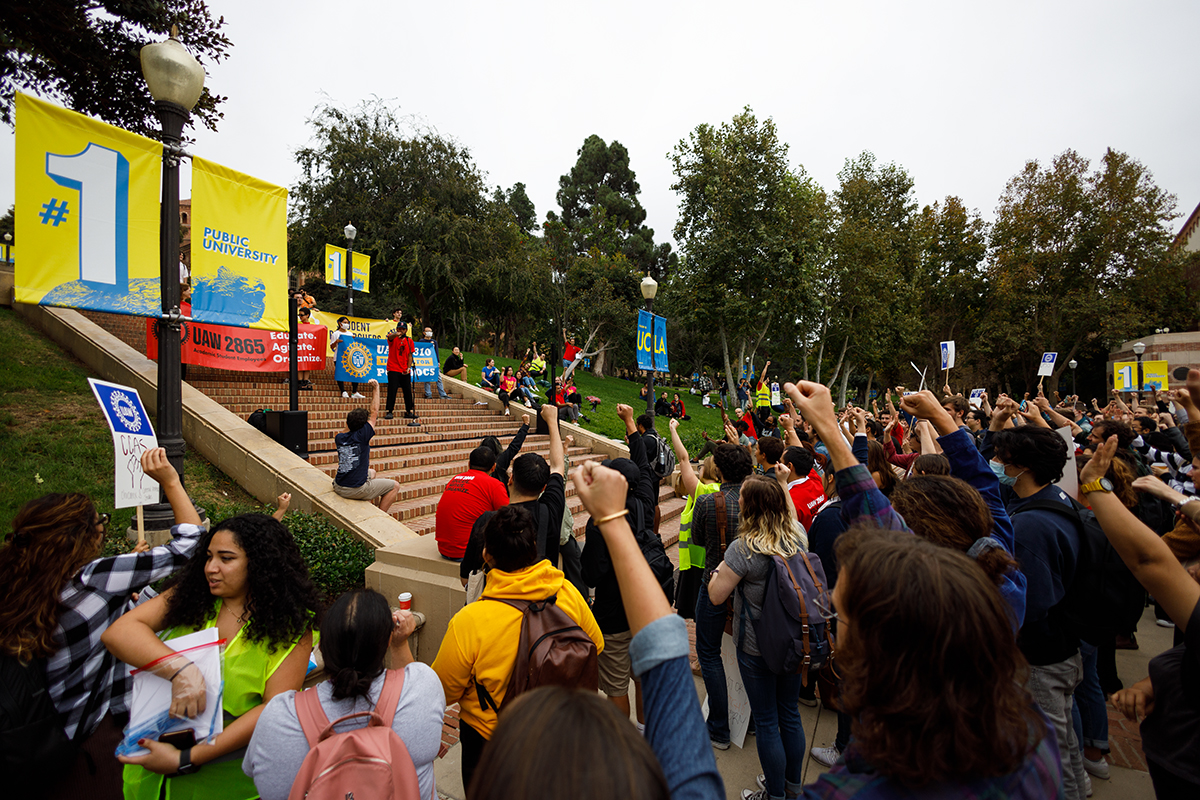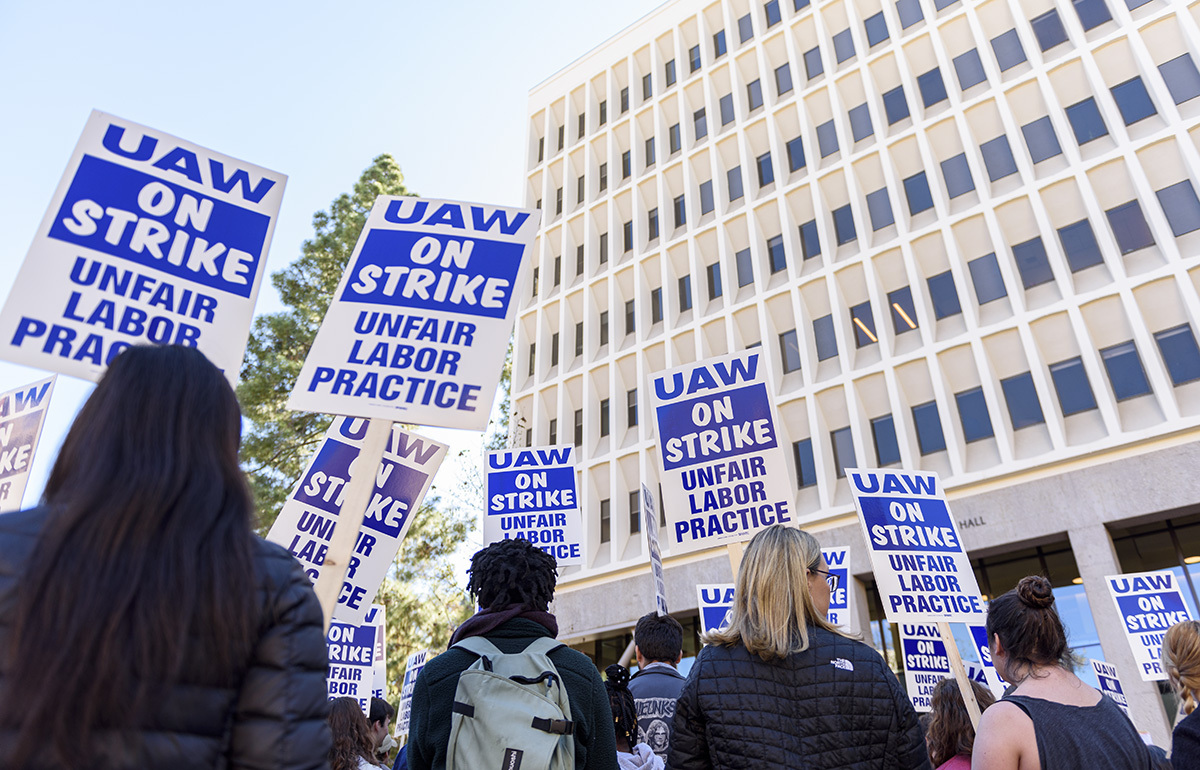The Quad: Bruins discuss loss of faith in admin, academic struggles caused by strike
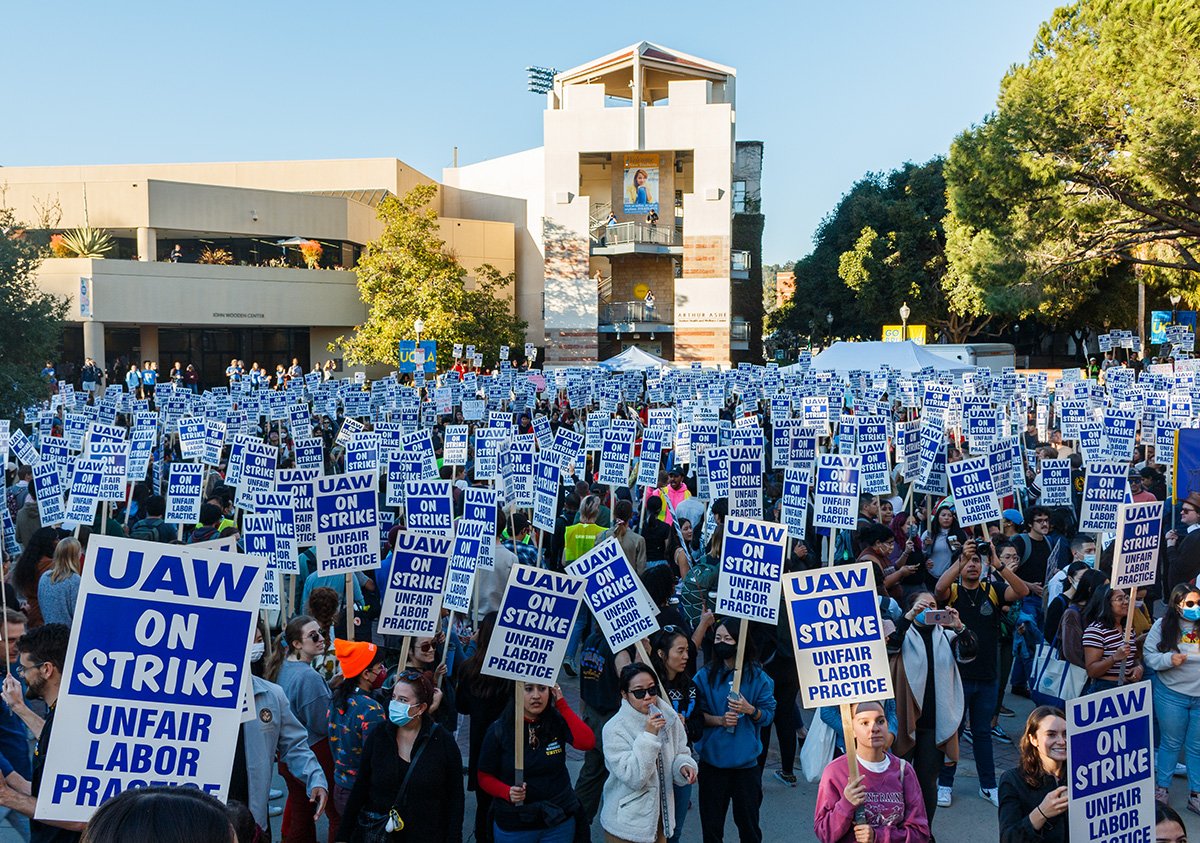
Union members protest at Bruin Plaza. Graduate and undergraduate students reflected on the aftermath of the protests and the University of California academic worker strike. (Christine Kao/Daily Bruin staff)
By Sophia Treanor
Feb. 7, 2023 2:53 p.m.
This post was updated Feb. 14 at 8:25 p.m.
Graduate student teaching assistants across the University of California participated in the largest strike of university academic employees in United States history in November. The strike was held in hopes of grasping the University administration’s attention to increase wages and offer other benefits to teaching assistants, researchers and other academic workers.
Graduate student Jack Sitarski, who works as a TA, said he participated in the strike because he believed that the wages TAs received were not sufficient to cover living costs in California.
Graduate student wages were approximately $23,000 prior to the strike, an amount generally not enough to support standard California rent, according to the Los Angeles Times.
“The reason I was most supportive of the strike is that with how low the stipends are, it is, I think, frankly not possible to complete … a Ph.D. at the UCs without either having a ton of money already saved up, … financial support from your family, … or making these absolutely ridiculous sacrifices like having to live out of your car,” Sitarski said.
Sitarski added that while his relationship with professors and students he worked with was not affected during the strike, his perception of the UC’s administration was.
“I don’t really trust the administration as much, … when you refuse to pay your graduate students a living wage and basically continue to lowball us throughout the entire bargaining process and then go to the press and pretend like you’re making these really generous offers,” Sitarski said. “I find it really hard to believe that they have their students’ best interests at heart.”
The United Auto Workers union paid active strikers $80 per day, adding up to a maximum of $400 per week, according to the union.
Sitarski said he was relatively happy with the agreement reached between University administration and graduate students.
“I think that it definitely could be improved in a lot of ways. But for me, the most pressing issue was 100% the stipends, and I saw a lot of improvement in that area. So I was pretty happy with it,” Sitarski said.
The strike agreement includes an increase in wages from around $23,000 to $34,000, as well as greater child care and health care support, according to the LA Times. Furthermore, the academic workers of UC Berkeley, UCLA and UC San Francisco are set to receive a higher wage of about $36,500 because of higher living costs and student selectivity at these universities.
During the strikes, however, some students said they struggled in their classes without a TA. Second-year environmental science student Grace Miller said the lack of access to a TA in her classes resulted in her performing poorly.
“I’m pretty sure there literally have been studies done on this that show that the best way to learn is by doing work and getting immediate feedback,” Miller said. “So without, let alone immediate feedback, any feedback at all, I had no idea if I was doing the homework correctly.”
Miller added that there was a lack of guidance regarding the complicated exams in one of her classes because of the strike.
“They’re a very specific type of question,” Miller said. “We hadn’t really prepared for the final, and I just didn’t have any more discussions with TAs. So I did not feel very well prepared.”
Miller said that despite several attempts by her classmates to communicate with her professor about the issues that arose from not having access to a TA, they did not receive a response.
Although first-year neuroscience student Mia Kulinsky felt similar struggles to Miller throughout the TA strike, Kulinsky said she did not feel much change in her level of stress or her performance in her classes.
“My mental health was probably around the same during the strike and not during the strike. But it did make things harder not having a TA to email if I had any questions,” Kulinsky said.
Despite the issues he had with the strike, Sitarski said he still enjoys being a TA and will continue to teach students at UCLA.
“I love the students here so much. They’re all really smart and ask good questions, and they engage with the material a lot, and I just really enjoy teaching them and talking with them,” Sitarski said. “I’m really excited to be back in a classroom, and I definitely want to keep TA-ing in the future. I really enjoy it.”



